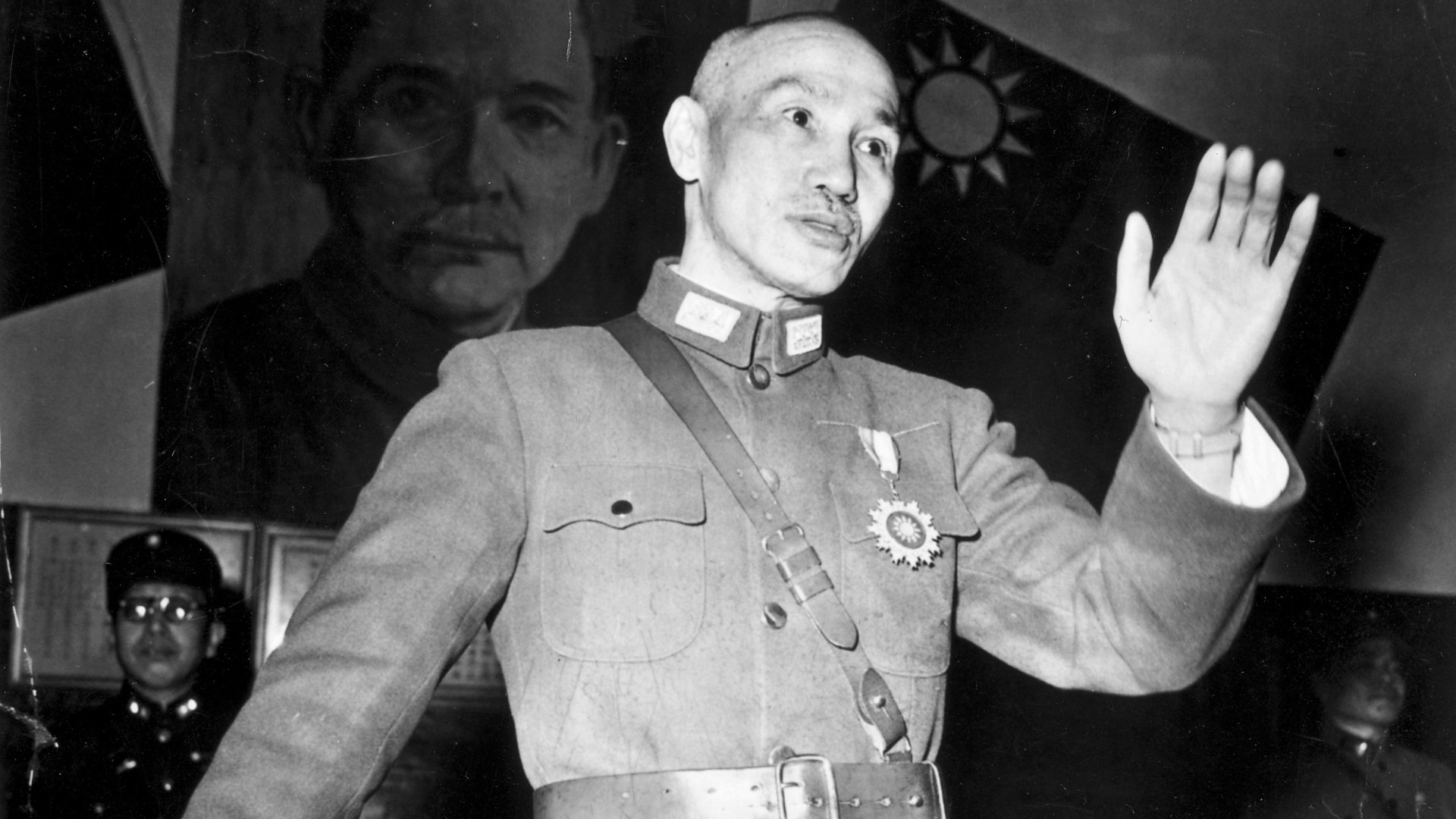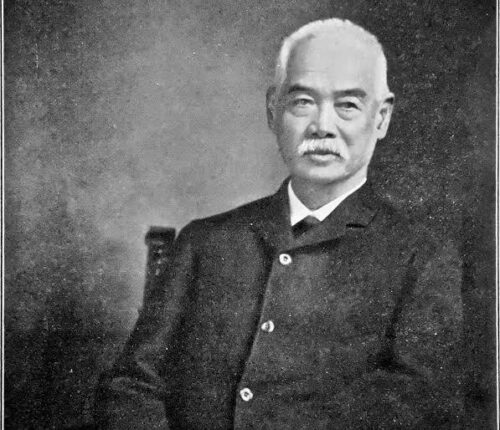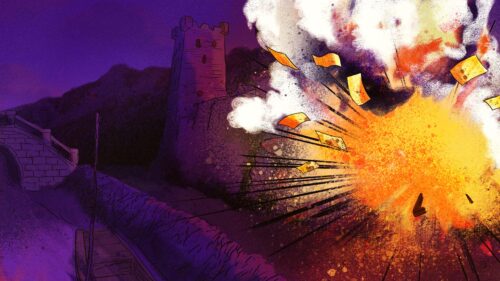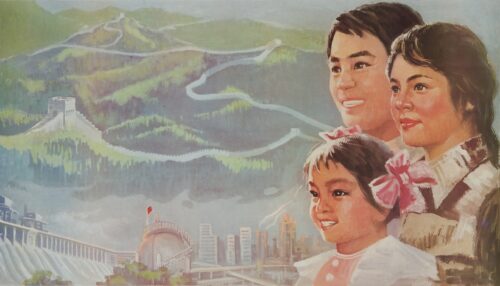This Week in China’s History: December 12, 1936
It’s unlikely Chiang Kai-shek (蔣介石 Jiǎng Jièshí) was sleeping well the night of December 11, 1936. He was far from home, having left the Yangtze delta to fly to the northwestern city of Xi’an. He was there because he had a problem: Many of his troops wanted to fight the Japanese, who had invaded northeastern China — Manchuria — in 1931. But rather than resist, Chiang had exchanged land for time, leading to the creation of a separate state of Manchukuo, under Japanese protection and direction.
While many rank and file, especially those with roots in the Northeast, urged Chiang to counterattack, Chiang instead insisted that the top priority was his ongoing war to eliminate the Chinese communists. Chiang would later tell American journalist Theodore White that “the Japanese are a disease of the skin; the communists are a disease of the heart” to explain his priorities. But many Chinese were frustrated — or worse, mutinous — at Chiang’s decision to fight other Chinese rather than foreign invaders.
It was this problem that had brought him to Xi’an, angry at the lack of enthusiasm for his anti-communist plan. He had been in Xi’an for about a week, meeting with Zhang and his men, explaining to them the importance of finishing off the Communists, who had been all but destroyed in the 1920s, but had regrouped — following their unlikely escape in the Long March — in northwestern China, not far from Xi’an.
Which was not coincidental to this story.
Chief among Chiang’s generals was Zhāng Xuéliáng 张学良, the so-called “Young Marshal.” Zhang’s father, Zhāng Zuòlín 张作霖, had been one of the most powerful of China’s warlords, at one point ruling all of the Northeast, an area about the size of Germany and France combined. The elder Zhang’s power in the region brought him into conflict with the Japanese, who assassinated him in 1928. Zhang Xueliang, then 27, succeeded his father as head of the Fengtian Army, which was later renamed as the Dongbei (Northeast) Army.
Seven years later, Zhang found himself commanding many of those same troops but now based in Xi’an, having surrendered their home province to the Japanese invasion in 1931. Chiang had justified the withdrawal saying that the Chinese forces needed time to equip themselves properly so they could effectively fight the Japanese. Zhang lobbied his commander to reprioritize, proposing elaborate plans for an offensive that would retake the Northeast. Awaiting orders to retake Manchuria, Zhang Xueliang instead received instructions to lead an attack on the Chinese communists.
Chiang’s refusal to permit Zhang to strike at the Japanese played into the hands of the Chinese communists who were based in Yan’an, near Xi’an. Led by Zhōu Ēnlái 周恩来, the Communists had reached out in secret to Zhang and proposed an alliance to fight against the Japanese. Such an alliance would only be possible with the agreement of the KMT leadership — either Chiang Kai-shek, or a successor. Zhang had tried hard to convince Chiang to move against the Japanese, but with Chiang Kai-shek stubbornly dug in, Zhang took up the Communist’s offer.
When Zhang Xueliang invited Chiang to Xi’an in late November, it was a last-ditch effort. If Chiang would not be persuaded to fight the Japanese, he would be compelled; if he would not be compelled, he would be removed. One way or another, Nationalist forces would be directed not against the Communists, but against the Japanese.
Chiang Kai-shek, of course, knew none of this. He arrived in Xi’an and angrily insisted that the Northeast Army move against the Communists. China was not yet strong enough, Chiang insisted, to fight against the Japanese, especially when it was divided internally. Only when the Communists were defeated completely could attention be turned to the Japanese. After weeks of meetings and arguments, he gave his subordinates an ultimatum, on the night of December 11: either Zhang Xueliang would lead the Northeast Army against the Communists, or they would be reassigned to the South to fight bandit pacification campaigns. Chiang considered the matter closed, and prepared to return to his capital at Nanjing the next morning.
Zhang and his co-conspirators met at midnight and decided the time had come for mutiny rather than negotiation. At dawn, soldiers loyal to Zhang burst into the guest house where Chiang’s staff was staying, killing or capturing his top aides. At the same time, a column of soldiers arrived at Chiang’s temporary headquarters at Huaqing Hot Springs, some 20 miles from the center of the city.
Chiang Kai-shek hurried to escape, having been awakened by the soldiers as they burst through the complex’s gate to find his residence. The mutineers found his bedroom door open and his bed empty; but Chiang had injured himself clambering up the hillside in the dark and was soon located and taken prisoner.
Resisting calls to execute Chiang for refusing to fight the Japanese, Zhang Xueliang insisted that his goal was to change policy, not to provoke revolution. He insisted that Chiang cease his war against the Communists and instead focus on the Japanese. Chiang refused. While headlines around the world reported Chiang’s kidnapping — along with rumors that he was dead, exiled, or missing — China’s fate hung in the balance.
Four days after Chiang’s capture, the Communists’ second-in-command, Zhou Enlai, arrived in Xi’an to meet with Chiang, but again Chiang refused. Not only had Chiang double-crossed the Communists and pushed them to the brink of annihilation a decade before, but he had made their extermination the centerpiece of his government’s policy. Meeting with their leadership was a difficult pill to swallow. As time wore on, rival factions in the KMT prepared to seize power, some preparing to send troops to Xi’an while others, led by Chiang’s wife, Soong May-ling (宋美齡 Sòng Měilíng), worked to negotiate a settlement. Soong arrived in Xi’an on December 22 to try to force a resolution. Finally, on Christmas Eve, Chiang agreed to meet with Zhou.
The two had worked together at the Nationalists’ Whampoa Military Academy in the 1920s, but this was their first meeting in years. The crux of the negotiations were simple: Chiang would agree to an alliance with the Communists if the Communists pledged their loyalty to him; Zhou would recognize Chiang as commander of the Red Army if such an alliance were struck. The Second United Front — imperfect and tenuous — was born. Chiang was released.
The Second United Front was fragile from the start. Even though the Communists and Nationalists fought together against the Japanese, tension, disagreement, and even outright fighting between the supposed allies was common throughout the alliance. Eventually, with Japan’s defeat in 1945 and nothing left to keep them together, the United Front disintegrated into a new civil war.
The two Nationalist generals who had led the kidnapping — Zhang Xueliang and Yáng Hǔchéng 杨虎城 Yáng Hǔchéng — both returned with Chiang Kai-shek to demonstrate their good faith, but both paid for their actions. Yang Hucheng was arrested and imprisoned for 13 years, until he was executed, along with his family, just before the Nationalists fled to Taiwan in 1949. Zhang Xueliang remained under house arrest for half a century, only gaining release in 1975 after Chiang Kai-shek’s death. He later emigrated to Hawai’i, where he died, aged 100, in 2001.
It is impossible to overstate the significance of the alliance between the Communists and Nationalists in 1936. We cannot of course know what would have happened without it, but without question, the 1930s and 1940s — including World War II in China and the Chinese civil war — would have gone much differently. Whether these men are regarded as traitors or heroes, there is no denying the impact of their actions.
This Week in China’s History is a weekly column.






